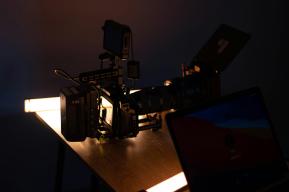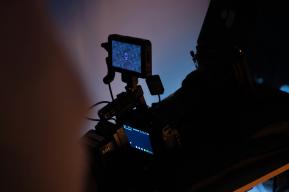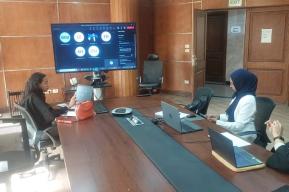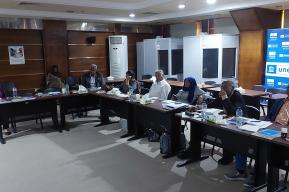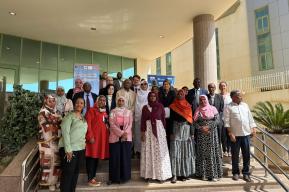News
G-WADI Advisory Group Meeting in Khartoum, Sudan

On 25 October 2018, UNESCO Family (the UNESCO Khartoum and Cairo offices, UNESCO International Hydrology Programme (IHP), Sudanese National Commission for Education, Science and Culture (NATCOM), Regional Centre for Water Harvesting (RCWH)) – organized G-WADI Advisory Group Meeting in Coral Hotel in Khartoum, Sudan.
UNESCO’s programme for Water and Development Information for Arid Lands – a Global Network (G-WADI) was established in 2003 by Intergovernmental Council of International Hydrological Programme (IHP) to address the urgent need for increased regional and international cooperation on sustainable development of water resources in arid and semi-arid regions. Over the last decade, G-WADI has grown into a worldwide network coordinated by a global secretariat and five regional networks, providing a catalyst to leverage relevant scientific knowledge for decision-making and practice. G-WADI contributes to the implementation of the Eighth Phase of IHP (2014-2021) “Water Security: Addressing Local, Regional and Global Challenges”.
More than 14 participants attended the meeting, including Dr. William Logan, representing Global G-WADI Secretariat, Dr. Shakeel Ahmed, representing Asian G-WADI Secretariat, Dr. Rashid Al-Abri, representing Arab G-WADI, and Mr. Nicola Zlatanovic, representing South East European G-WADI, Prof. Abdin Salih and Dr. Moahmed Raouf Darwiesh from Arab Water Council, Dr. Abdelaziz Zaki, representing the UNESCO Regional Bureau for Sciences in Arab States and UNESCO IHP, Dr. Anil Mishra from Water Sciences Division of UNESCO (through Skype), Eng. Abdelgadir Salih, representing the UNESCO Khartoum Office, participants from the Sudanese NATCOM, RCWH, and also from Tanzania and Ethiopia.
The 4 hours meeting started with welcoming messages from of UNESCO IHP and G-WADI Global Secretariat, followed by presentations and discussions on G-WADI outlook and strategic outlines that focused on how to advance G-WADI network forward. The participants elaborated joint improving items, such as the need in more joint events, utilization of Science-Policy-Interface, more active building on achievements and contributing to better coordination among the different G-WADI parts.


